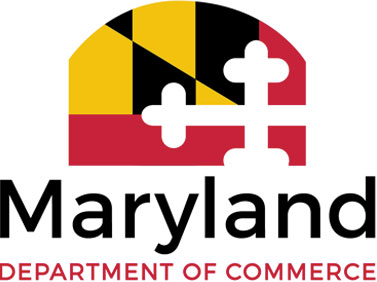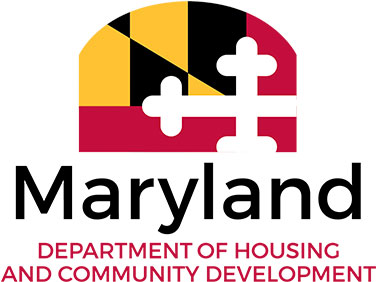Maryland Commerce Designates, Redesignates and Expands Three Enterprise Zones
Zones help to revitalize communities, attract businesses and create jobs
BALTIMORE, Md. — The Maryland Department of Commerce has designated and expanded two enterprise zones in the state, and redesignated and renewed multiple focus areas. The Tilghman Enterprise Zone in Talbot County has been approved for a new enterprise zone within the Village of Tilghman to include 85 acres containing Village Center and two waterfront properties. The Carroll Camden Enterprise Zone Focus Area has been redesignated and Central West, Holabird/Orangeville, Jones Falls, and Oldtown Enterprise Zone Focus Areas have been renewed in Baltimore City. These areas encompass more than 2,100 acres and lie within the city’s existing 13,453 acre Enterprise Zone. Harford County’s Greater Aberdeen/Havre de Grace Enterprise Zone has been expanded, adding 114 contiguous acres in the Perryman Peninsula to its existing 9,606 acres for future industrial growth. The additions coincide with the county’s Comprehensive Rezoning, which recently rezoned these properties to commercial/industrial uses. The Enterprise Zone program, established in 1982, provides local property and state income tax credits to businesses that create jobs and make capital investments.
“The eagerness of areas to apply for designation, expansion, and renewal of Enterprise Zones is a testament to the success of this worthy program,” said Maryland Commerce Secretary Mike Gill. “The passage of these zones represents real, tangible opportunities for every corner of Maryland by fostering a climate of business growth, job creation, and economic prosperity.”
As of December 15, 2017, Maryland has 36 Enterprise Zones. Businesses located in the state’s enterprise zones have received approximately $45 million in property tax credits in FY 2018 based on more than $3 billion in capital investments made in FY 2017. Over the past five years, businesses in Maryland’s enterprise zones have made a total of $13.5 billion in capital investments.
The new Talbot County Enterprise Zone in the Village of Tilghman is a historic watermen’s village dependent on fishing, boatyard, and marina businesses. The county intends to build on and revitalize this community by utilizing the numerous incentives that accompany Enterprise Zone designation.
“The economic vitality of Tilghman is important for our county and we at the Talbot County Council are delighted that portions of the island were designated an Enterprise Zone,” said Talbot County Council President Jennifer Williams. “This economic development tool will help retain our businesses and provide a valuable incentive to attract new enterprises.”
Baltimore City intends to provide more opportunities for development, investment, and revitalization in commercial areas, and renewal of this Enterprise Zone designation will continue to encourage businesses to invest in the city, infill vacant and underutilized industrial areas, and create jobs for city residents.
“Focus areas have played an important part in attracting investment and businesses in areas of greatest need in Baltimore City,” said William H. Cole, president and CEO of the Baltimore City Development Corporation. “The personal property tax credit and higher level of incentives have enabled expansion and attraction of businesses to increase job opportunities for city residents.”
The Expanded Greater Aberdeen/Havre de Grace Enterprise Zone in Harford County continues to be an important tool in the redevelopment efforts along the Route 40 corridor. As a result of the success of the county’s original Enterprise Zone designation, Harford County plans to increase its benefits to these areas.
“Harford County has a low vacancy rate for industrial properties, but through our comprehensive zoning review process, these 114 acres in the sought-after Perryman Peninsula were recently rezoned industrial/commercial,” said County Executive Barry Glassman. “Including them in our Aberdeen/Havre de Grace Enterprise Zone will greatly enhance opportunities for future growth.”
Commerce approves the state’s enterprise zones, while local governments are responsible for their administration. Businesses operating within an enterprise zone may be eligible for a tax credit towards their state income tax filings based upon the number of new jobs created, and a tax credit on their local real property taxes based upon their overall capital investment into a property.
About Maryland Commerce
The Maryland Department of Commerce stimulates private investment and creates jobs by attracting new businesses, encouraging the expansion and retention of existing companies, and providing financial assistance to Maryland companies. The Department promotes the State’s many economic advantages and markets local products and services at home and abroad to spur economic development and international investment, trade and tourism. Because they are major economic generators, the Department also supports the Arts, film production, sports and other special events. For more information, visit commerce.maryland.gov.


